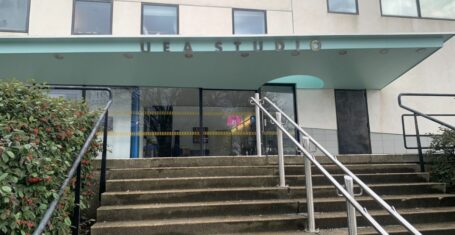
UEA Medical Centre to bring in £35 charge for medical notes
The change will be introduced in September
From September, students will have to pay the UEA Medical Centre (UMS) £35 for a medical note.
The charge will apply for students in need of a medical certificate to apply for extenuating circumstances or an extension.
At first it will only apply for new students starting this academic year. From September 2018, it will also apply to second year students, and finally by September 2019 it will apply to first, second and third years. Currently the university pays a subsidy to the UMS so students are not charged for a UEA Medical Certificate.
Jon Sharp, Director of Student Services, said: “The cost of certificates issued for missed exams or medically-related interruptions to study will continue to be covered by the University for all students registered with the University Medical Centre.
“The revised charging system will be introduced for new students registering with the Medical Centre from the start of the 2017-18 academic year and will apply only to medical certificates provided in support of extension requests where self-certification does not apply.”

UMS’ medical certificate request form detailing the new charge.
He continued: “We’re currently working with the Students’ Union on how the new approach will be implemented, and will ensure that any student in financial difficulties is not dissuaded from seeking appropriate certification.
“UEA will continue to provide more funding than many other universities. Many don’t have an on-campus Medical Centre and, of those that do, many apply standard NHS fees.”
“The current system could be regarded as unfair since students (especially mature students) who do not register with the University Medical Centre cannot access this subsidy.
“In addition, we have seen an exponential increase in students seeking medical certificates and UMS has noted that many do not present with any diagnosable symptoms. By bringing our practice into line with other universities and applying a charge for certification, it is hoped that this will reduce the number of unnecessary consultations with medical staff.
“Ending the subsidy will deliver a saving to the University that can be applied for the benefit of all students.”

A spokesperson for the Union told The Tab that the university has “actually underspent their budget significantly and that this had more to do with cost cutting to fund future buildings rather than too many people needing a note.”
In an email sent to the SU, SSS revealed that for 2016-17, a budget was set for medical certificate subsidy that was based upon 2015/16 quantities. This budget was for 3,000 certificates to be issued at a cost of £34.34 each (a total of £103,020 excluding INTO).
However the actuals for 2016-17 show this budget to be significantly underspent. SSS have now told us that the actual number of certs issued in 16-17 was 2,586, totalling a cost of £88,803 – a £14,217 underspend.
A spokesperson for The SU told The Tab: “There are currently 15,058 students at UEA, a figure that in theory is set to rise to circa 16,058 in 2017-18. On the assumption that the rate of cert per student will not increase (by taking steps to manage the demand problem via better LTS guidance and mental health support), and assuming that the pattern of demand is uniform amongst all sections and years of the student body, that would represent a circa 6.6 per cent increase in the demand for certs.

Mental health has become a massive issue in many UK universities.
“We might reasonably assume the total number of certs next year will be 2,757, which at a cost of £34.66 each would come to £95,547. That would still be less than the amount that was budgeted this year.
“What we do know is that the University has been implementing two per cent efficiency savings across its “professional services”. We have previously been told these would not affect the student experience. But the only way to read this is that this “efficiency gain” from the UMS budget (to fund future buildings), is being paid for by cutting the budget for UMS, when it clearly doesn’t “need” to.”
Commenting on these developments, SU Welfare Community and Diversity Officer India Edwards said: “Given that the rise in ‘demand’ for medical certs is all about taking on too many students and the University’s mental health crisis, it was bad enough to learn that the University was going to have to manage increased demand for medical certs by cutting its subsidy for them.
“But these new figures, which reveal the justification to be a smokescreen for ‘efficiency savings’, are nothing but a kick in the teeth for students that are already struggling. The University needs to restore its subsidy to the medical centre now to ensure that no student registered with UMS is ever dissuaded from submitting extenuating circumstances- and needs to be straight with students next time it proposes one of its cuts.”









































